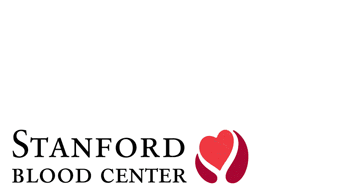Advancing Medicine: Use of Blood Products in Research
 The Stanford Blood Center (SBC) mission states “We provide hope for the future: teaching tomorrow’s leaders in transfusion medicine, researching to unlock mysteries inherent in blood, and connecting donors to patients every day.” Part of the work SBC does to further our mission is provide blood byproducts to research labs at Stanford, throughout the Bay Area and across the country. The medical consent form donors are asked to read before each donation notifies them that their blood may be used for research and 95% of SBC donors are happy to participate. There are even some volunteer donors who explicitly request that their blood to be used for research.
The Stanford Blood Center (SBC) mission states “We provide hope for the future: teaching tomorrow’s leaders in transfusion medicine, researching to unlock mysteries inherent in blood, and connecting donors to patients every day.” Part of the work SBC does to further our mission is provide blood byproducts to research labs at Stanford, throughout the Bay Area and across the country. The medical consent form donors are asked to read before each donation notifies them that their blood may be used for research and 95% of SBC donors are happy to participate. There are even some volunteer donors who explicitly request that their blood to be used for research.
Why blood components are important to research
Since 1978, SBC has been providing tailored blood products and samples, as well as clinical trial services, to our own staff of primary investigators and researchers at Stanford University, and to the biotech community at large. By providing blood and blood components, SBC is contributing to the development of novel and potentially lifesaving treatments and therapies.
A recent example of this relates to the DNA of kids with peanut-allergies. Whether you have children in school or not, you’ve probably heard that peanut allergies are prevalent and dangerous enough that peanut butter sandwiches and other peanut products are no longer allowed in many schools. Kari Nadeau is a Stanford researcher that is changing the way peanut allergies affect children with oral immunotherapy, a therapy that was first tested on blood samples from SBC donors. Read more about Dr. Nadeau’s work here.
Another exciting program SBC participates in each year is Cells in Space, which studies the effect of aging in cells. Samples from a select group of SBC blood donors are sent into space and then studied to determine what happens to T-cell activation when exposed to microgravity. Products from SBC were specifically chosen for the project due to the premium blood supply available.
These life-changing medical discoveries are possible because scientists, researchers and clinical trials had access to a variety of blood products when they needed them.
Why researchers look to SBC
In 2014 alone, 21,376 SBC blood products were used for research. Researchers look to SBC for their product needs because of our dedication to finding unique products required for specialized research. “When we receive an unusual request, our reaction is not to say ‘that can’t be done’ but ‘how can we make that happen?” said Marino Bozic, customer relations supervisor.
One such product that is often needed but difficult to secure is LRS Chamber, a byproduct of platelet donation. Researchers typically require the product the same day the platelet is drawn and, fortunately, SBC is often able to meet the request. In fact, part of SBC’s customer relations policy is to respond to requests promptly.
SBC offers a variety of products and services that can assist companies with research activities. Some of the products offered include:
- Leukocytes
- Plasma
- Red blood cells
- Whole Blood
Services offered include:
- Blood products for in-vitro use
- Blood products for in-vivo use (clinical trials)
- Clinical laboratory testing services
- Research donor selection and recruitment
For a full list of products and services SBC offers or to contact our customer relations team, please visit our Products and Services page.
SBC is proud to be on the forefront of advances in medicine and recognizes the role donors play in achieving this goal. Thank you for donating with SBC and being part of the groundbreaking research taking place.
